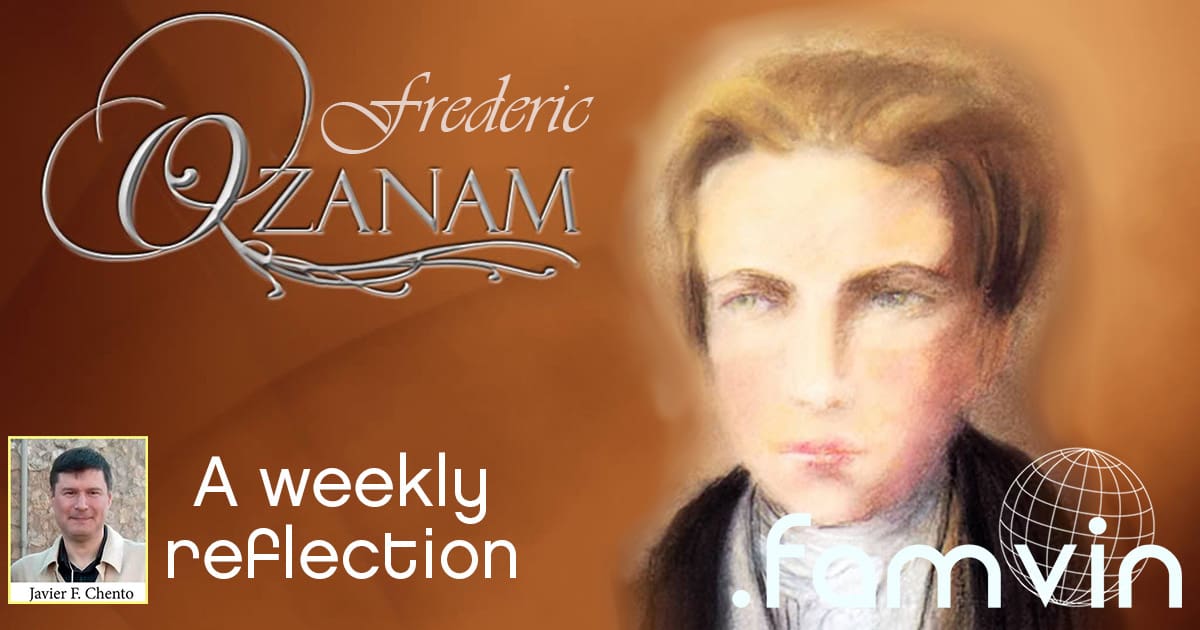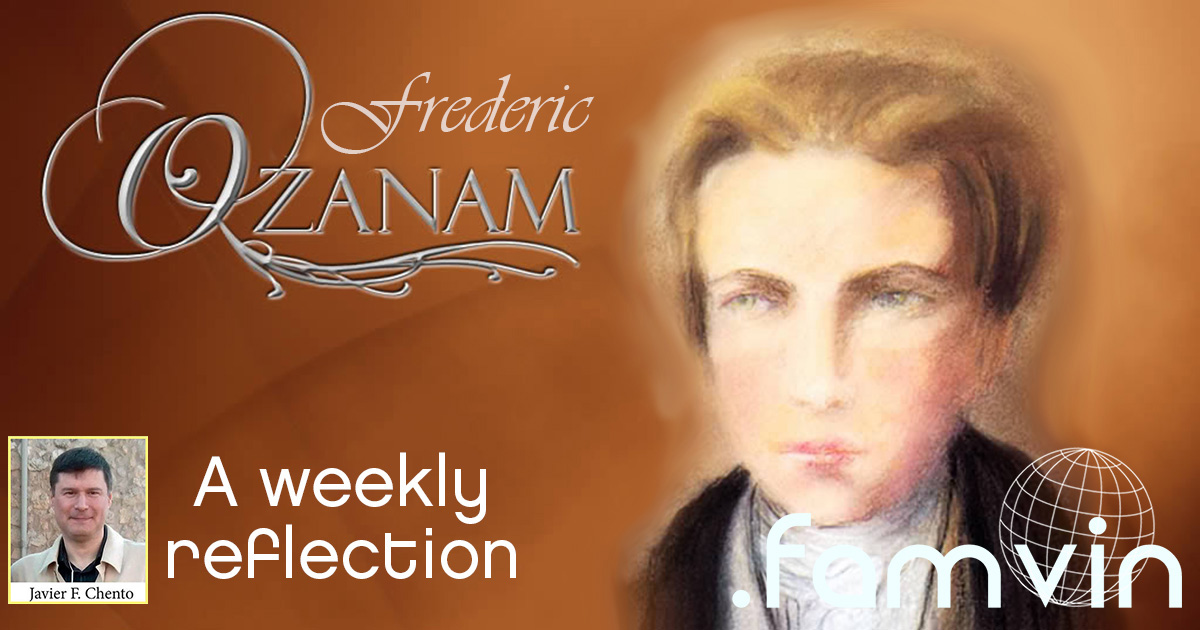What Rich Man will be Saved? • A Weekly Reflection with Ozanam
We need not dwell on those amongst them who are better off [at Lyonnais Street]; those who, for six persons, can supply two beds, into which are huddled pellmell the sick and the healthy, boys of eighteen with girls of sixteen. Let’s not talk about the ruin of the clothes, reaching the point where in the same house a score of children could not go to school for lack of clothes. The most fortunate of these wretched beings want food of some sort, and if they die of consumption let it not be said that they perish from hunger in the most civilized city in the world. Some live on the remains that, through the bars of the Luxembourg, the cooks of the troops quartered in the castle give them. An old woman fed for eight days on the pieces of bread she collected among the filth, that she soaked in cold water.

Frederic Ozanam, article «Aux gens de bien» [To good people], in L’Ère Nouvelle, nº 151, September 15, 1848.
Reflection:
- It is surprising (to the worse) to see how little the situation of the poor in the big cities has changed, since Ozanam wrote this, more than 150 years ago. I am convinced that many Vincentians, and Christians and people of good will in general, can testify to similar situations in their environment, today.
- Reading this text of Frederic, what immediately came to my mind was a personal experience in a city where I lived a few years ago: I had the privilege to visit a family of immigrants. The six members of the family lived in a flat of only 40 square meters: the married couple, three children between 7 and 16, and the grandmother, very old and sick. The misfortune had caused that husband and wife the loss of employment, without hardly any social “safety net.” The grandmother slept in an armchair, in the tiny living room; the couple, with a small daughter, in a room equally small; the two teenagers also shared a bed. Thanks to the financial support and accompaniment of a group of Vincentians, they could eat and pay for the rent of the apartment and the bills for electricity, water, children’s school materials, etc. One wonders, by witnessing these cases of good and hardworking people, what has gone so wrong in our society, which condemns to oblivion and misery people who are as dignified and deserving of respect as any of us.
- The poor confront us in our personal status. They interpellate us, challenge our lifestyle, and question our commitment to the gospel.
- The poor distribution of goods is something that believers have been denouncing since the early times of Christianity. In the Didaché, also called the “Teaching of the Twelve Apostles”, written at the end of the first century, it says: “Do not hesitate to give, nor complain when you give” (Chapter 4); “Do not turn away from him who is in want; rather, share all things with your brother, and do not say that they are your own. For if you are partakers in that which is immortal, how much more in things which are mortal?” (Chapter 4). In several parts of this document we find, unequivocally, the obligation to share the assets that are owned.
- The Apostolic Fathers wrote many texts in this regard. Let’s recall one of Clement of Alexandria, which indicates that wealth is not, in itself, bad, but the use we make of it: “Riches, then, which benefit also our neighbors, are not to be thrown away. For they are possessions, inasmuch as they are possessed, and goods, inasmuch as they are useful and provided by God for the use of men; and they lie to our hand, and are put under our power, as material and instruments which are for good use to those who know the instrument. If you use it skillfully, it is skillful; if you are deficient in skill, it is affected by your want of skill, being itself destitute of blame. Such an instrument is wealth. Are you able to make a right use of it? It is subservient to righteousness. Does one make a wrong use of it? It is, on the other hand, a minister of wrong. For its nature is to be subservient, not to rule. That then which of itself has neither good nor evil, being blameless, ought not to be blamed; but that which has the power of using it well and ill, by reason of its possessing voluntary choice. And this is the mind and judgment of man, which has freedom in itself and self-determination in the treatment of what is assigned to it. So let no man destroy wealth, rather than the passions of the soul, which are incompatible with the better use of wealth.” (“Quis dives salvaetur” [What rich man will be saved?], nº 14).
- Before the vision of injustice and poverty, the Vincentians are called, mainly, to two things: first, to alleviate it (“We were to run to the spiritual needs of our neighbor as if we were running to a fire.”, St. Vincent de Paul, CCD XI, p. 25); secondly, actively strive to change society so that the distribution of wealth guarantees the well-being of the needy and transform reality systemically. This second point obligatorily means that we, on a personal level, live with simplicity and without attachment to our possessions.
Questions for dialogue:
- Share some personal experience that has marked us, in line with those of Frederic. How did that experience change my life?
- How can we make a reality in our lives the texts we have read — those from the Didache and Clement of Alexandria?
- Is the use I make of my personal assets part of my life review?
Javier F. Chento
![]() @javierchento
@javierchento
![]() JavierChento
JavierChento








0 Comments